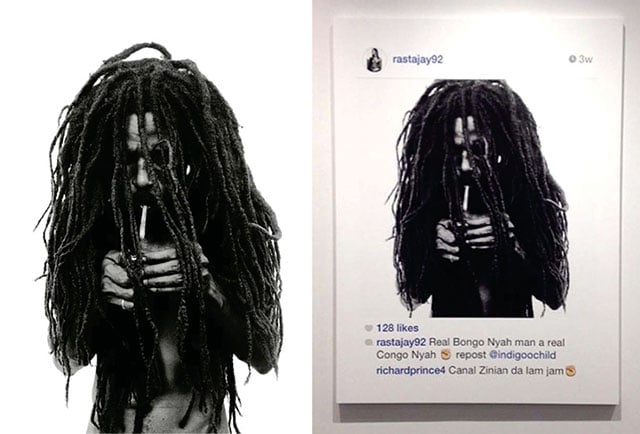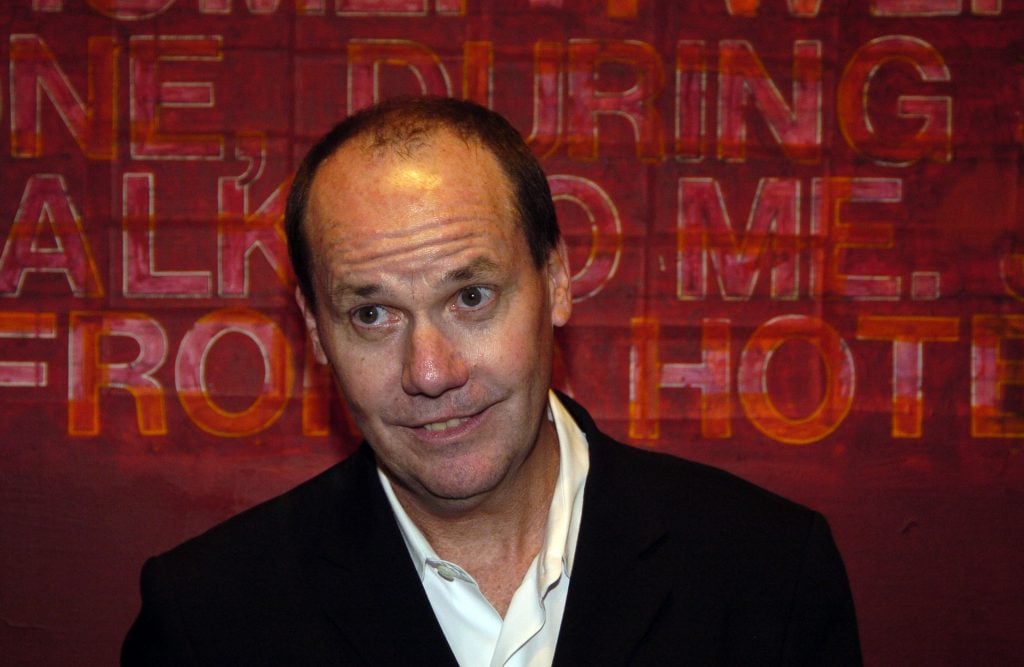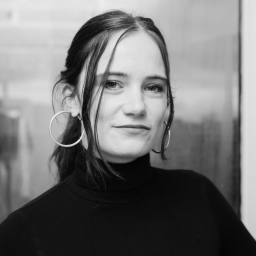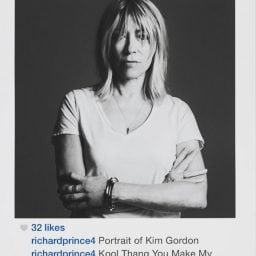Gagosian Gallery is not liable for profits from any sales of Richard Prince’s “New Portraits” series, works by the appropriation artist at the center of an ongoing copyright case, according to a decision in the U.S. District Court for the Southern District of New York filed on September 11.
The “paintings,” which were printed screengrabs of Instagram posts from various influencers and celebrities, have prompted both widespread critical debate and legal action since the artist presented them at Gagosian in New York in 2014, where they sold for $100,000 each. In the latest development in one protracted legal saga related to the series, the court sided with Gagosian’s motion for summary judgment and dismissed photographer Donald Graham’s claims seeking compensation for “indirect and unrealized profits attributable to the alleged infringement of Graham’s photograph.”
Graham, whose Instagram photo in the series depicts a Rastafarian man smoking a joint, initiated a lawsuit against Gagosian in 2015 alleging copyright infringement, after originally filing a cease and desist that went unheeded. The gallery bought the work that appropriated Graham’s image, which is called Untitled (Portrait of Rastajay92), prior to the show. Graham’s lawsuit came down to what this week’s opinion calls “indirect and unrealized profits,” that Gagosian makes in a hypothetical sale of the work
Graham asserted that he is entitled to a cut of those unrealized profits, seeing as this specific work was used as promotional imagery for selling the other 76 works from the series. Graham’s suit also claimed that there was “a causal connection between the infringement and unrealized profits” and “a method for determining the amount of unrealized profits.” But the court deemed such theoretical gains “not sufficiently connected to the alleged infringement and overly speculative,” and granted the gallery’s motion.

Donald Graham’s original photograph and Richard Prince’s appropriation of the photograph for his “New Portraits” series.
In May, Graham won an early motion in the saga, when a judge rejected a request for summary judgment from Prince and ruled the copyright case can proceed to trial. Today’s ruling only shot down the concept of “unrealized profits,” and curtailing any liability by Gagosian, which has not offered the work for sale, according to a Bloomberg Law report.
Four other photographers have pursued similar legal actions related to the “New Portraits” series in the past, but these claims have not found success. The artist and Gagosian maintain that the images are “transformative,” and thus not subject to copyright—and courts have mostly sided with them.
In 2016, makeup artist Ashley Salazar, who goes by Mynxii White, sued Prince for the use of one of her photos in the series, but the complaint was dismissed in U.S. District Court for the Central District of California due to improper venue.
But artists whose work was appropriated have sometimes notched small victories, too.
Another photographer, Eric McNatt, had his lawsuit against Prince’s use of his photo of Kim Gordon greenlit by a judge earlier this year, and the case awaits trial.
Prior to the “New Portraits” series and the corresponding lawsuits, Prince was brought to court regarding other imagery depicting Rastafarians. In 2009, Patrick Cariou sued the artist for his “Canal Zone” works, which appropriated photos that Cariou took in Jamaica and published in his book “Yes Rasta.”
A 2011 ruling sided with the Frenchman, calling for the destruction of the remaining copies of the catalogue and the unsold “Canal Zone” paintings, and that Gagosian could also be held liable. However, the decision was largely overruled on appeal in 2013 and Cariou dropped all claims in the matter in 2014.










